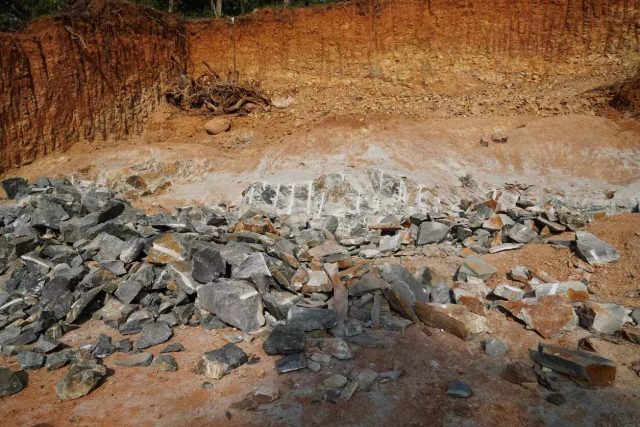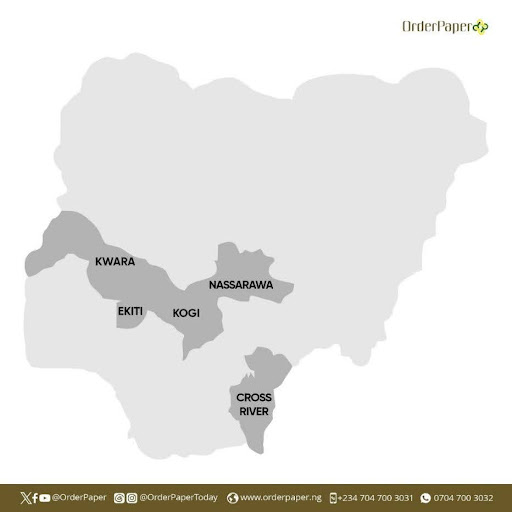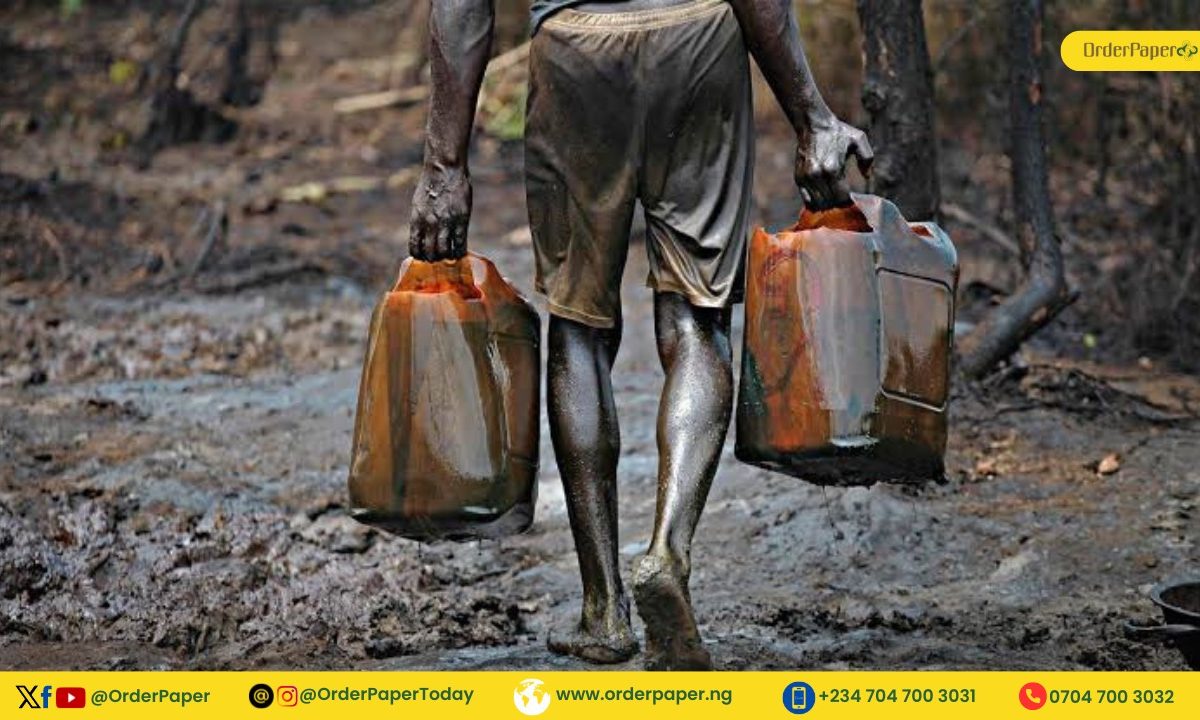In a global attempt to phase out fossil fuel, can Nigeria leverage its mineral resources to become a leading advocate for renewable energy, while upholding good climate practice and peace amongst the host communities?

On the back of the COP28 Agreement for the world to shift from fossil fuels to renewable energy, it has become necessary to spotlight the mineral resources available in Nigeria that could move the country comfortably from the shackles of fossils to clean energy. As the world embraces sustainable energy solutions, Nigeria lies in a unique position to leverage its abundant lithium and sodium solid mineral resources for the development of renewable energy technologies.
READ ALSO: COP28: Why Africa Must Accelerate Transition from Fossil Fuel to Renewable Energy
The importance of batteries
Beyond the trapping of naturally replenishing energy resources which significantly lowers environmental impact, one of the most important necessities is the storage and release of renewable energy. When renewable energy generation exceeds immediate demand, the surplus can be stored in batteries. When the energy generation becomes lower than demand, the stored energy can be discharged from the batteries to meet the required load.
Batteries themselves are not a source of renewable energy. Rather, they are an energy storage solution that can be used in conjunction with renewable energy sources to store and release electricity as needed.
Aside from Lead-Acid Batteries and Flow Batteries, the most sought-after batteries in the world are Lithium-ion and Sodium-ion Batteries- this is due to their high energy density, long life circle, efficient energy storage, cost-efficiency, and most importantly, their environment-friendly feature.
Nigeria: Goldmine of battery minerals
Very lately, Nigeria has seen a rush with an inflow of foreign mining companies wanting to profit from the billion-dollar global lithium market following discoveries of large lithium deposits in Nigeria. At the moment, lithium is mined in Nassarawa, Kogi, Kwara, Ekiti, and Cross River States.

The automobile giant and clean energy company, Tesla, expressed interest in forming a trade relationship with the Federal Government of Nigeria to mine lithium, but the offer was declined. The government stated that it would agree to the request if Tesla established a battery factory in Nigeria. This is a laudable move by the government. However, the government must tread carefully regarding laws and regulations that would guide these highly sought-after minerals, with lessons learnt from the mining of crude oil in Nigeria.
READ ALSO: Energy transition: Biofuel as viable alternative to fossil fuel
Lithium as catalyst for conflict?
Across the globe, countries that have discovered lithium have become susceptible to violence. In India, the People’s Anti-Fascist Front issued a threat, stating that it would not tolerate the “exploitation” and “theft” of Lithium discovered recently in Jammu and Kashmir. According to historical and empirical evidence, the discovery of high-grade Lithium in Nigeria may have violent repercussions.
Lithium-fueled conflict could manifest itself in three ways. Firstly, there may be intra and inter-community disagreements about who owns the land where the resources are located, and who should benefit from the exploration. An example is the lethal conflict between Enugu-Otu Aguleri in Anambra East Local Government Area of Anambra State and Ashonwo/Odeke in Ibaji Local Government Council of Kogi State over oil-rich boundary lands. The violence resulted in the killing of seven people and the destruction of 52 homes.
READ ALSO: Reps: Penalise oil companies for defaulting on host communities
Illegal mining activities will form the second flash point. Organised armed groups, especially terrorists, could be at the forefront of this violence because of their proclivity to maraud areas where natural resources are found. As seen in Zamfara State and other parts of Nigeria, terrorists had infiltrated gold and lead-zinc mining sites, causing legitimate investors to flee the sector.
Thirdly, there may be a conflict between the communities, exploration companies, and the government due to neglect, environmental contamination, or non-payment of reparations. Disputes between oil companies and host communities in the Niger Delta region have resulted in violent attacks, protests, and, in many cases, legal tussles after the land was taken over for oil exploration and local people didn’t get what they felt they deserved in return. Mining and renewable energy operations have environmental and social impacts on host communities. It is crucial to address these impacts and biodiversity loss through collaborative approaches. Implementing robust environmental safeguards and adhering to internationally recognized standards assist in minimizing negative effects on local ecosystems, water sources, and air quality. Regular monitoring, assessment, and reporting of impacts are necessary to ensure compliance with environmental regulations.
READ ALSO: Alake: We need N250bn to explore solid minerals
Looking out for host communities
Furthermore, the government must establish benefit-sharing mechanisms to ensure that host communities derive tangible benefits from mining and renewable energy projects. This can be done through revenue-sharing arrangements, local procurement policies, job creation, infrastructure investments, and community development projects. These mechanisms should be designed through participatory processes, involving host communities, to ensure their needs and priorities are adequately addressed. Collaboration between mining companies, renewable energy developers, government agencies, and host communities is key to fostering mutual understanding, trust, and accountability. To get this done the government may consider expanding the scope of the NOGCID (Nigerian Oil and Gas Industry Content Development) Act to cover solid minerals or pass a separate Law covering this scope.
To maximize the utmost potential of lithium and sodium exploration, commercialization, and development in Nigeria, the government must take proactive steps in regulating the exploration and mining of lithium across the various states alongside the exportation, processing, and production of lithium-powered devices, while minimizing environmental degradation which is important for long-term sustainability.
How Nigeria can become a lithium hub
There are 7 important principles and strategies that must be upheld for Nigeria to successfully become the lithium hub of Africa:
- Environmental impact assessments: This must be prioritized and strictly enforced by legislation before any mining operation is carried out. These studies would evaluate the potential environmental risks and help identify mitigation measures to minimize negative effects on ecosystems, water sources, and surrounding communities.
- Sustainable mining practices: To minimize environmental impact, it is important to promote sustainable mining practices. This includes adopting technologies that reduce water and energy consumption, implementing efficient waste management systems, and employing proper reclamation and rehabilitation techniques to restore mined areas.
- Preservation of biodiversity: Despite the advantage of commercialization of the minerals, it is important to preserve biodiversity by establishing protected areas and wildlife corridors around mining sites. Furthermore, studies must be conducted to identify and protect critical habitats and species, ensuring minimal disruption to the local ecosystem.
- Water management: The government must implement efficient water management practices to protect water resources during mineral extraction and processing. This includes minimizing water usage, treating and recycling wastewater, and preventing contamination of rivers, lakes, and groundwater.
- Compliance with regulatory standards: The government must do more implementation than legislation. Enforcement of strict adherence to environmental regulations and monitoring compliance by mining companies should not be done with laxity. Regular inspections, environmental audits, and the imposing of penalties for non-compliance to deter environmentally harmful practices must be carried out transparently.
- Community engagement and benefits: Engagements with Communities should not be limited to oil-producing communities alone. Solid mineral-producing communities must also be paid the necessary attention to ensure they benefit from mineral development. This would foster goodwill, reduce conflicts, and enhance environmental stewardship.
- Technology innovation and capacity building: Beyond annual trainings at the Nigerian Mining Week, the government must invest in research and development to explore environmentally friendly mining technologies that should in turn be regularly taught to these miners. This includes efficient extraction and processing methods, waste management techniques, and alternative energy sources to reduce carbon footprint and environmental degradation.
READ ALSO: Why FG must finance energy transition — Hon. Onuigbo
For these strategies to be effective, there is the need to re-evaluate the list of National Strategic Minerals to include lithium and sodium. It is expected that new and future mining rush will be directed at these group of minerals. The government must intensify the exploration of these groups of minerals within the National Integrated Mineral Exploration Project (NIMEP) to ensure targeted development and support to enable Nigeria play actively in the future of the global mining sector.
By integrating the above-mentioned strategies into the solid mineral development plans, Nigeria can harness the economic potential of sodium and lithium while safeguarding the environment and promoting sustainable development to ensure a greener and more prosperous future.



